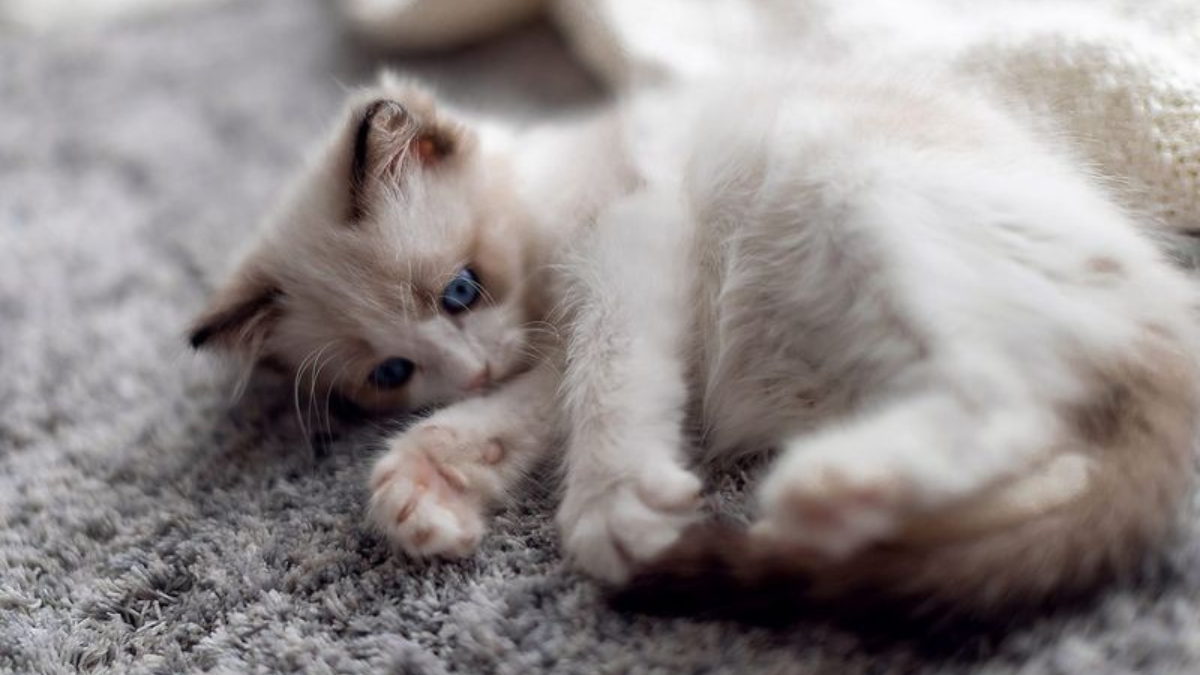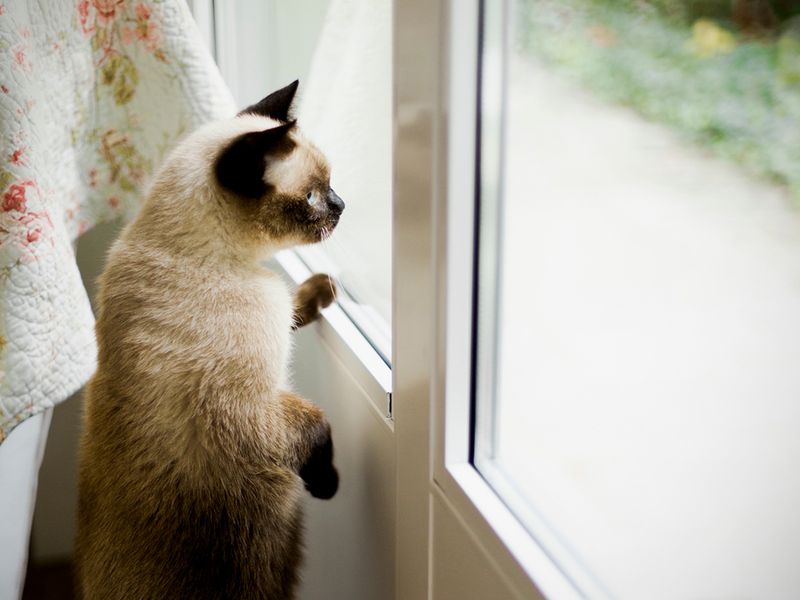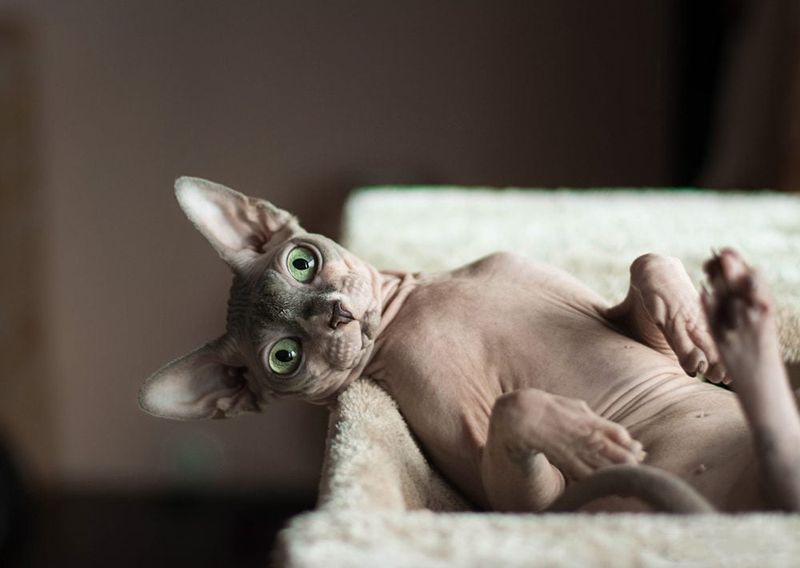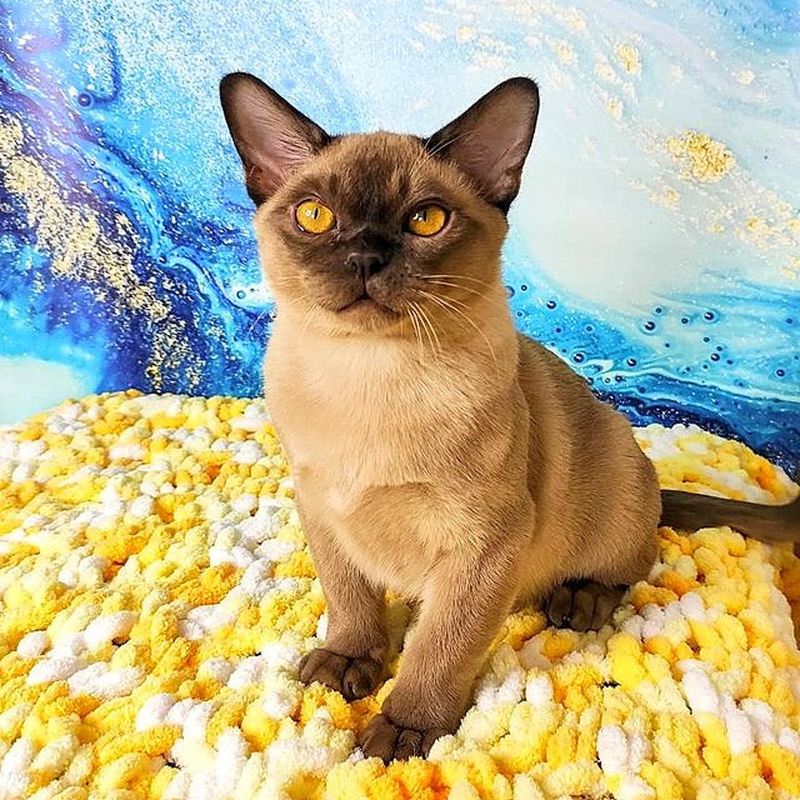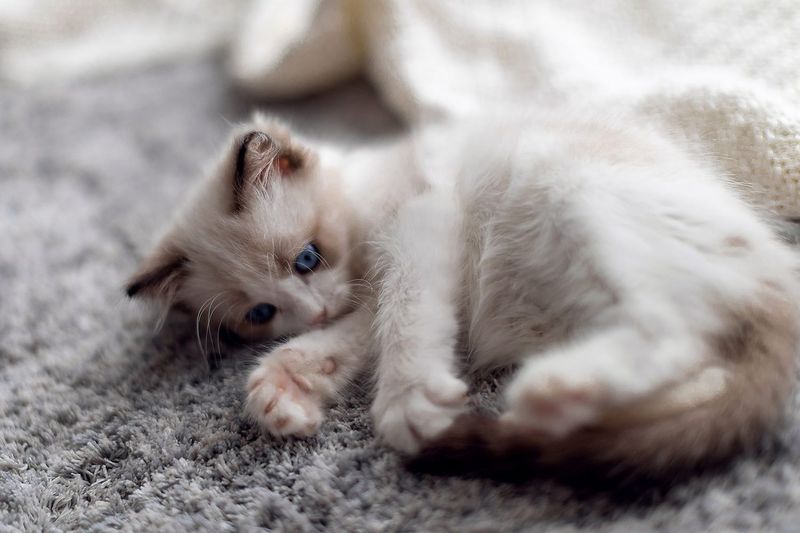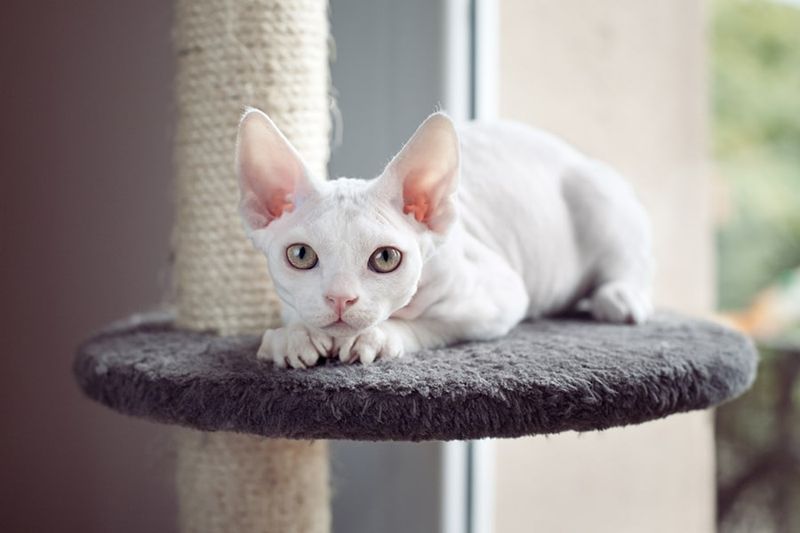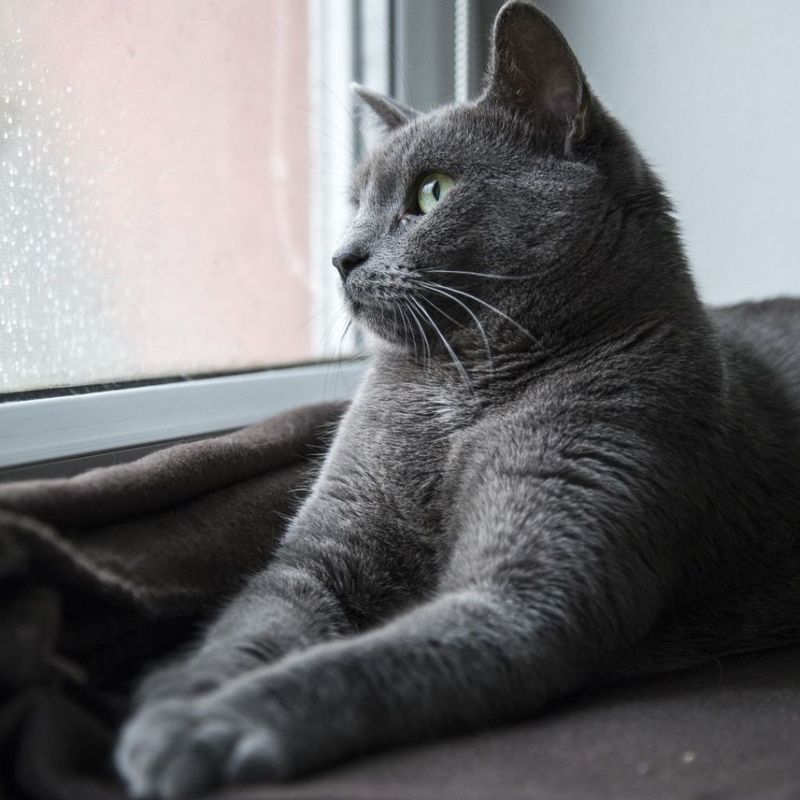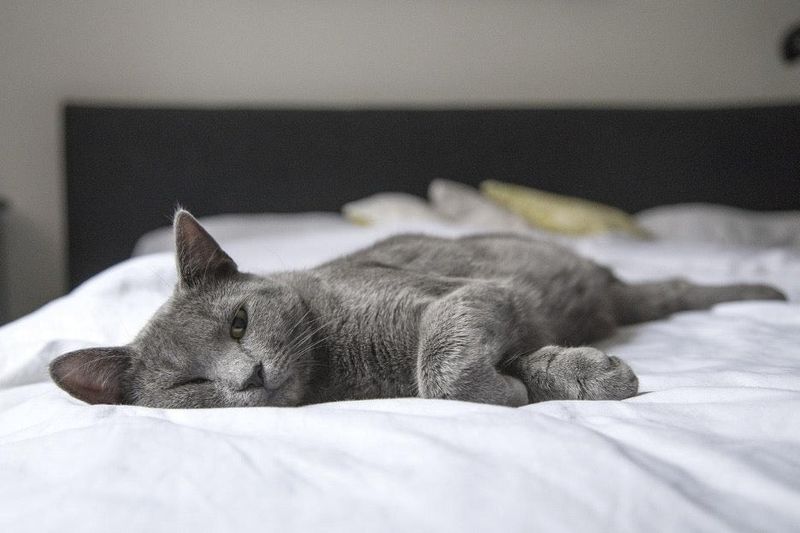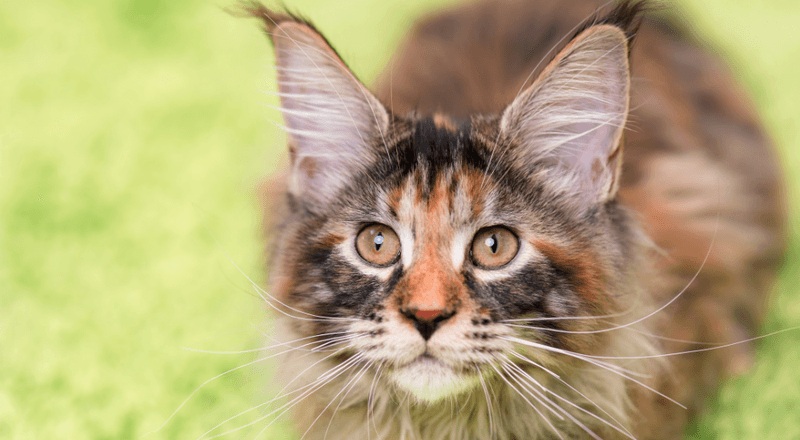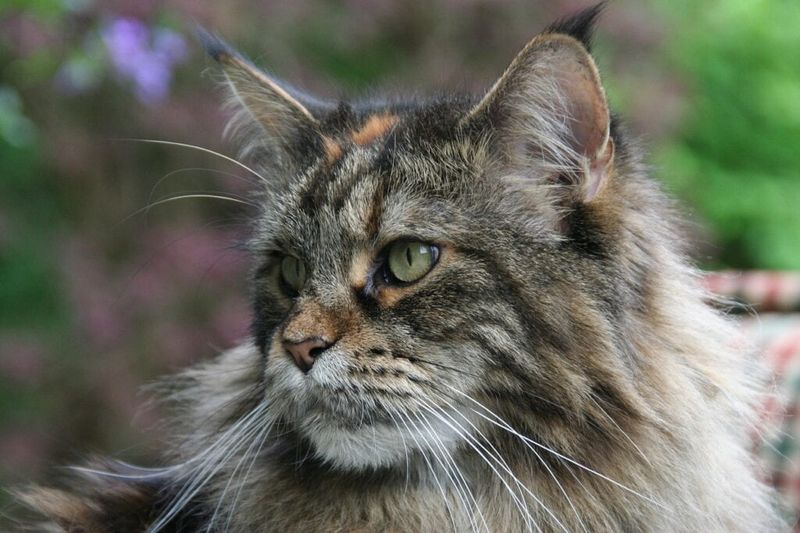📖 Table of Content:
Cats are often seen as independent creatures, enjoying their personal space and solitude. However, some breeds have a stronger desire for human companionship than others. These cats form deeper bonds with their owners and require more attention to feel content and secure.
For those who have demanding jobs or travel frequently, choosing a breed that is comfortable being alone is crucial. Some cats are more adaptable to solitude, while others can become anxious or depressed without enough interaction. Finding the right breed that aligns with your schedule can significantly affect both the cat’s well-being and your peace of mind.
Understanding the different needs of cat breeds in terms of socialization is key to a successful relationship. While certain breeds thrive in a quiet, solitary environment, others may need constant companionship to feel happy. Recognizing these preferences ensures a harmonious home for both you and your feline friend.
1. Siamese
Talkative and clingy, Siamese cats form intense bonds with their humans. These vocal felines will follow you from room to room, demanding attention and interaction throughout the day.
When left alone, Siamese cats often become distressed, expressing their unhappiness through excessive meowing, destructive behavior, or even depression. Their intelligence makes them particularly aware of changes in routine.
Owners of Siamese cats should consider pet sitters or companions if they’re frequently away. Providing puzzle toys and interactive gadgets can help, but nothing truly replaces human contact for these social butterflies.
2. Sphynx
Beneath their hairless exterior, Sphynx cats have hearts overflowing with affection. Their lack of fur means they seek warmth, often finding it in the form of human cuddles and snuggles under blankets with their owners.
Separation creates genuine distress for these cats. Without their human heating pads, Sphynx cats can become anxious and depressed when left alone for extended periods.
Many Sphynx owners report their cats greeting them at the door like dogs and becoming visibly upset when departure routines begin. Their need for companionship makes them poor candidates for households where everyone works long hours.
3. Burmese
Dubbed “velcro cats” by enthusiasts, Burmese felines stick to their humans like glue. These golden-eyed companions want nothing more than to be involved in every aspect of your daily activities.
Their playful, puppy-like demeanor masks a deep emotional dependence. Burmese cats don’t just enjoy human company—they require it for their emotional well-being.
When left alone regularly, these sensitive cats may develop behavioral problems including excessive vocalization, inappropriate elimination, or over-grooming. Their intense desire for interaction makes them excellent family pets but challenging companions for busy singles who spend minimal time at home.
4. Ragdoll
Gentle giants with baby-blue eyes, Ragdolls earn their name from their tendency to go limp when held. Don’t let their relaxed demeanor fool you—these cats form deep attachments to their people.
Ragdolls thrive on routine and stability. Disruptions to their schedule, especially prolonged absences of their favorite humans, can trigger anxiety symptoms like excessive grooming or reduced appetite.
Their docile nature means they may not act out destructively when stressed, instead becoming withdrawn or depressed. This quiet suffering can be easy to miss but equally concerning. Many Ragdoll owners find getting a second cat helps provide companionship during necessary absences.
5. Devon Rex
Mischievous and monkey-like, Devon Rex cats form extraordinary bonds with their humans. Their elfin appearance with large ears and wavy coat houses a personality that craves constant interaction and play.
These cats become particularly attached to their primary caregiver. When that person leaves, even for short periods, Devon Rex cats can experience significant distress.
Their high intelligence makes them acutely aware of abandonment. Devon Rex owners often report their cats waiting by the door or window, sometimes for hours, when they’re gone. For people with unpredictable schedules, this devoted breed might create more heartache than joy.
1. Russian Blue
Reserved yet loyal, Russian Blues appreciate quality time with their humans but don’t demand constant attention. Their silver-blue coats and emerald eyes may catch your eye, but it’s their self-sufficient nature that wins hearts.
These cats appreciate routine and enjoy predictable environments. Once comfortable in their space, Russian Blues handle alone time remarkably well, entertaining themselves or simply napping until you return.
They typically form strong bonds with their owners but maintain a healthy independence. Russian Blues make excellent companions for working professionals or those with moderate travel schedules, as they’re content to greet you warmly upon return rather than stress during your absence.
2. British Shorthair
Famously unflappable, British Shorthairs embody the classic independent cat stereotype. These plush-coated felines appreciate their humans but don’t need constant reassurance or attention to feel secure.
Their calm, steady temperament means they rarely develop anxiety when left alone. British Shorthairs are masters of entertaining themselves, whether watching birds from windows or simply lounging in their favorite spots.
Unlike needier breeds, they won’t destroy your home or howl endlessly when you’re gone. Their self-contained nature makes them perfect companions for busy professionals, frequent travelers, or anyone who values a low-maintenance pet relationship that still offers affection on their terms.
3. American Shorthair
Balanced and adaptable, American Shorthairs strike the perfect middle ground between affection and independence. These cats descend from working mousers, which explains their self-sufficient nature and practical outlook on life.
When you’re home, they’ll happily engage in play or cuddle sessions. When you’re away, they simply adjust their routine accordingly without distress.
American Shorthairs typically maintain their eating and grooming habits even during owner absences. Their easygoing attitude makes them excellent companions for first-time cat owners or households with varying schedules. They appreciate interaction but never become desperate for it—a truly low-drama feline option.
4. Maine Coon
Gentle giants with tufted ears and bushy tails, Maine Coons possess remarkable emotional intelligence. Despite their size and affectionate nature, these cats maintain a healthy sense of independence rooted in their working cat heritage.
Maine Coons enjoy human company but don’t become distressed when left alone. They’ll happily hunt toy mice, explore cat trees, or nap in sunbeams until your return.
Their adaptable personality makes them suitable for various living situations. Maine Coons form strong bonds with their families but remain emotionally secure during separations. This balance of affection without dependency makes them excellent companions for households with fluctuating schedules or occasional travel plans.
5. Norwegian Forest Cat
Wild-looking yet domesticated, Norwegian Forest Cats carry the self-reliance of their forest-dwelling ancestors. Their thick, water-resistant coats and muscular builds hint at a history of surviving harsh Scandinavian winters without human assistance.
These cats form loving bonds with their families but maintain a sense of personal space and independence. When left alone, Norwegian Forest Cats typically continue their normal activities without signs of stress or anxiety.
Their confident nature means they don’t seek constant reassurance from humans. Norwegian Forest Cats make excellent companions for busy households, as they appreciate interaction when available but remain perfectly content during solo time, often preferring high perches where they can survey their domain in peaceful solitude.
